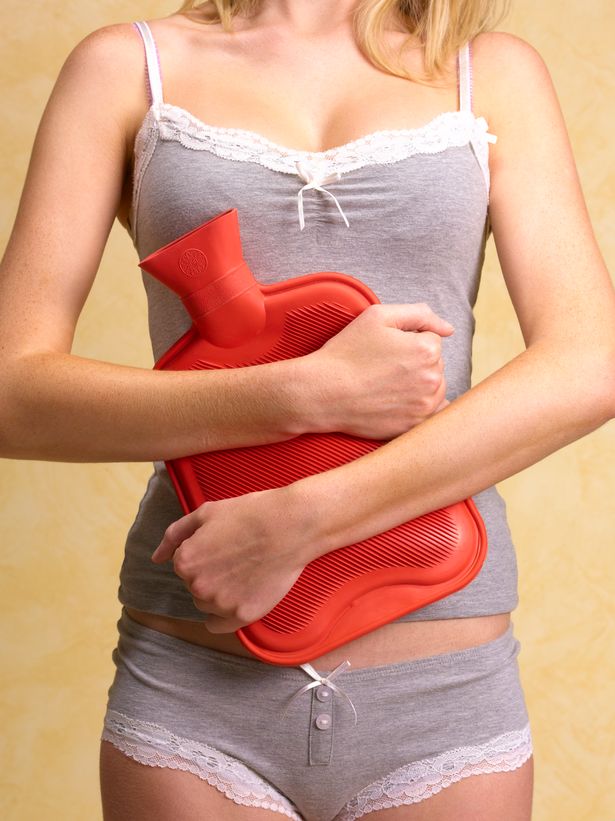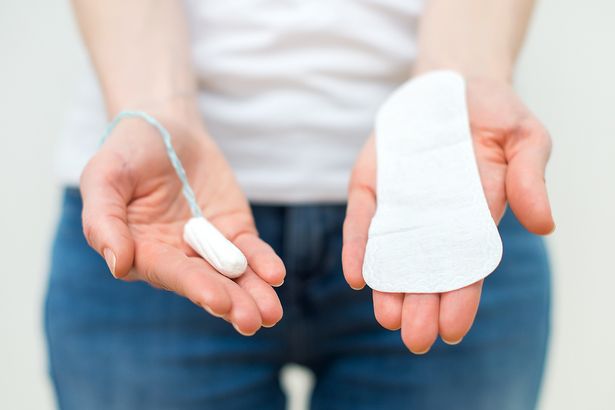Every woman’s periods are different.
From frequency to flow, they differ drastically from person to person, which often means we’re left with questions about whether we’re ‘normal’.
But it’s important to understand our cycles so that we notice if they chance, which could be a sign of pregnancy or health concerns.
Intimate healthcare experts INTIMINA have put together a quiz on that time of the month to test your knowledge.
Gynecologist Dr Shree Datta said: “Our experience of periods really varies from person to person so it’s important to remember that our cycle is specific to us, as individuals.
“Most women start their periods between the ages of 9 to 15, with the first signs of puberty being breast development and underarm hair growth.

“In the first few years, periods can be irregular and crampy pains are not unusual – usually in the first few days of your period.”
Have a go at the quiz yourself to see how well you really know your periods.
Scroll down for the answers below.
1. On average, how many periods do women get in a lifetime?
A – 280
B – 480
C – 780
2. How much blood is released on average during a period?
A – 6 to 8 tablespoons
B – 6 to 8 teaspoons
C – 6 to 8 ladles
3. What are period cramps?
A – When the muscular wall of the womb tightens
B – The natural shedding of the uterus wall
C – Both of the above
4. How long is the average menstrual cycle?
A – 28 days
B – 7 days
C – 14 days

5. When was the first period cup invented?
A – 1892
B – 1986
C – 1937
6. What is the third phase called in your cycle?
A – Ovulatory Phase
B – Menstrual Phase
C – Luteal Phase
7. Can you get pregnant during your period?
A – No
B – Yes
8. What is the average age of menopause?
A – 50-55
B – 40-45
C – 60+
9. True or false: the sound of your voice changes during your period?
A – True
B – False
10. Can your periods stop if your weight fluctuates?
A – No
B – Yes
C – Sometimes

Answers
1. B
The number sounds huge, but between the ages of 12 and 52, a woman will actually experience around 480 periods.
2. B
It’s not unusual for your period to change in heaviness or duration over time, but if you chose 6 to 8 ladles, it is probably time for a review by your Gynaecologist, so that if there are any problems these are detected and treated early.
Dr Shree Datta explains that having heavy periods are not necessarily bad, but periods can be difficult to manage, so keep a diary of your periods – how long they last and how heavy they are, as this can signify a change in your womb structure or ovaries.
3. C
Easy answer right? During your menstrual period, your uterus contracts to help remove its lining.
Hormone-like substances trigger the muscle contractions that can cause painful cramps.
4. A
Dr Shree Datta explains that the average length of a period cycle is usually between 25-35 days and if your period doesn’t regulate in the first 2-3 years, it’s worth tracking your cycle and seeing your Gynaecologist.
Whilst it’s natural to have some variation, a regular monthly cycle can indicate that you are ovulating – or releasing an egg each month, which is useful to know if you are trying to conceive.
5. C
The first cup was invented by American actress Leona Chalmers who patented a design of a menstrual cup which was made from latex rubber.
6. A
There are four cycle phases starting with the Menstrual phase, lasting on average 5 days, followed by the Follicular phase (day 6 to 14), then the Ovulatory phase (day 15 to 17) and finishing with the Luteal phase, from day 18 till 28.
7. B
Dr Shree Datta explains that even though it is rare to get pregnant if you are on your period, it is possible, so knowing your cycle is really important.
Even though there is a good chance of being pregnant if you miss a period and are sexually active, other reasons which can cause this include: a hectic lifestyle, hormonal contraception, stress and a significant weight change.
8. A
The average age at which women have their last period in the UK is 51, but this varies according to your ethnicity and also the age at which your mother underwent the menopause, so it’s worth checking with your mum.
9. A,
Female reproductive hormones actually impact your vocal chords, altering your voice.
10. B
Dr Shree says that if you lose a lot of weight, exercise or train strenuously or go through a stressful time, this is your body’s way of coping at that time, but be reassured that it may be temporary.
